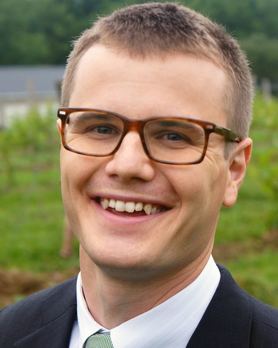Full Interview with Tim Messler '05, Editor
|
What did you do after graduating from Conn?
I moved to New York City with three friends in the fall of 2005 after graduating from Conn. I didn’t have much of a plan and started looking for work in documentary production. I volunteered at the inaugural Camden International Film Festival (CIFF) in my hometown of Camden, ME and there I met David Redmon, who was showing his first documentary Mardi Gras: Made in China. David and his partner Ashley Sabin were working on a new film about a group of people living in a tent community in post-Katrina New Orleans. I started by logging and digitizing their footage and ended up co-editing Kamp Katrina with David and Ashley. The film premiered at SXSW in 2007 [and won Special Jury Award at the Independent Film Festival of Boston, the Best Documentary at the Magnolia Film Festival and the Special Jury Award at the Nashville Film Festival]. Afterwards I worked on a variety of documentary projects. I interned at Public Policy Productions on Critical Condition. I researched and conducted pre-interviews for Helen Whitney's Forgiveness: A Time to Love and a Time to Hate. I was a production coordinator and archival researcher at Apograph Productions and an associate producer on their American Experience film The Abolitionists. I was a supervising producer at Ark Media on the six-part series The African Americans: Many Rivers to Cross. |
What are you doing now?
For the last several years I have been working in post-production. I was an assistant editor at Ark Media on MAKERS: Women in Business. Recently I have been editing and co-producing an independent documentary, now titled Sala’s Gift. I just finished editing a sizzle reel for a spec project that will hopefully become a documentary series.
How did Film at Conn prepare you for the field?
Several of the courses I took at Conn (Documentary Theory and Production, Experimental Film, Cinematic Cities, etc...) were mind-expanding events for me. I was exposed to styles of filmmaking that I never knew existed and I started developing a vocabulary for talking and writing about films. I also began to realize how difficult it is to make work that lives up to your own expectations and is compelling for others.
What were your favorite things about Film at Conn?
My favorite things were the camaraderie I felt with my fellow Film Studies majors and the experience of watching and discussing challenging, offbeat movies with them. It was always terrifying and exhilarating to screen our projects for each other.
For the last several years I have been working in post-production. I was an assistant editor at Ark Media on MAKERS: Women in Business. Recently I have been editing and co-producing an independent documentary, now titled Sala’s Gift. I just finished editing a sizzle reel for a spec project that will hopefully become a documentary series.
How did Film at Conn prepare you for the field?
Several of the courses I took at Conn (Documentary Theory and Production, Experimental Film, Cinematic Cities, etc...) were mind-expanding events for me. I was exposed to styles of filmmaking that I never knew existed and I started developing a vocabulary for talking and writing about films. I also began to realize how difficult it is to make work that lives up to your own expectations and is compelling for others.
What were your favorite things about Film at Conn?
My favorite things were the camaraderie I felt with my fellow Film Studies majors and the experience of watching and discussing challenging, offbeat movies with them. It was always terrifying and exhilarating to screen our projects for each other.
